FROM OUR JULY 2024 MR AWARDS ISSUE: GEORGE FELDENKREIS, PERRY ELLIS INTERNATIONAL: LIFETIME ACHIEVEMENT AWARD
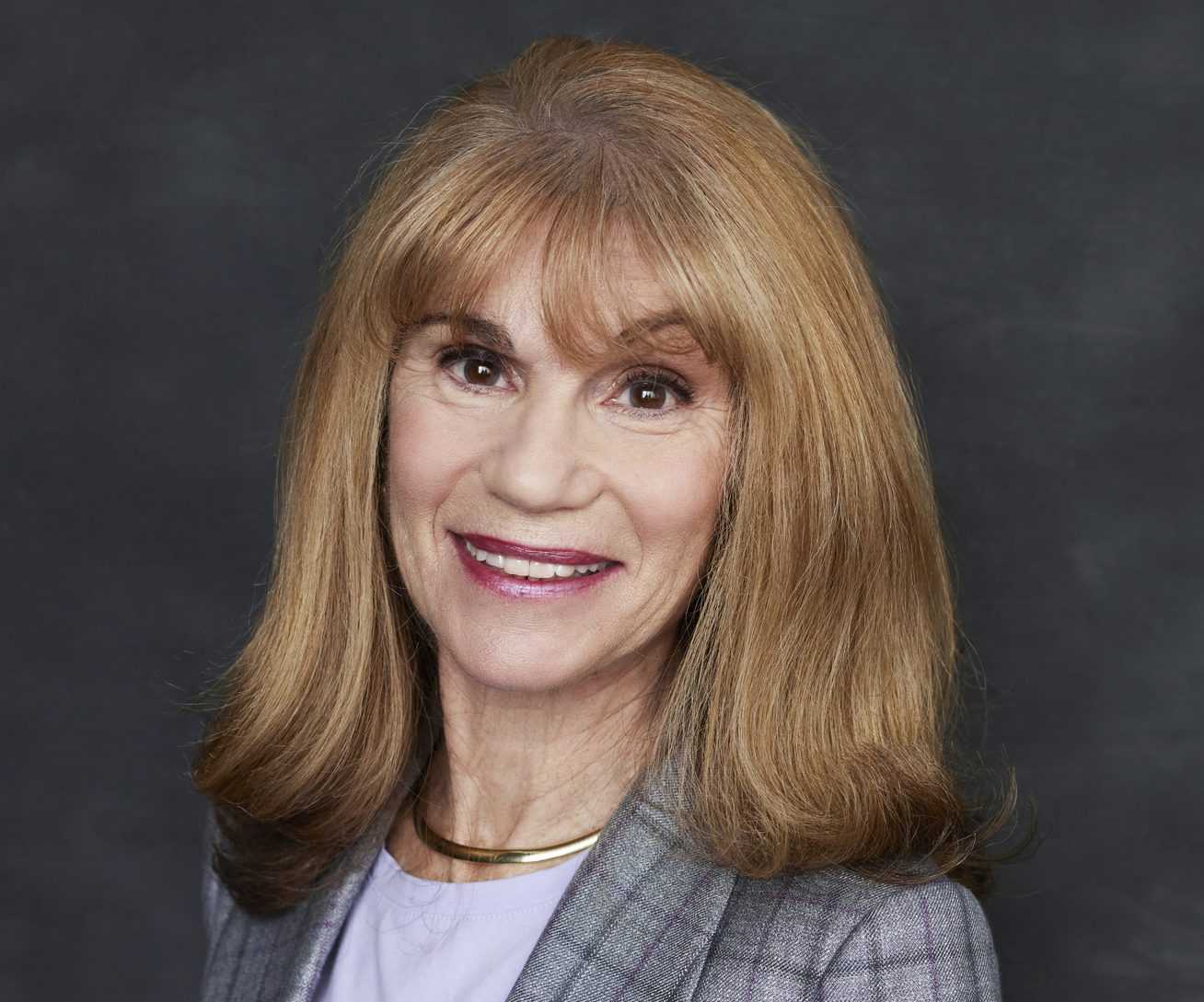
The entire MR team proudly presents our July 2024 MR Awards issue. If you haven’t received a hard copy, please page through a digital version at Issuu, and we’ll continue to post individual stories here on MR-mag.com. If you haven’t been getting MR in print, be sure that you are on our mailing list for future issues by completing this form.
Success, as officially defined in the Oxford dictionary, means “the accomplishment of an aim or purpose.” We prefer a different definition, one we discovered in writings by children with disabilities: “If you achieve what you want and are happy, that is success.” And to that, we add our own observation: the most successful people are those who follow their dreams and inspire others to follow their own. May dreams come true for MR’s innovative and intrepid 2024 honorees. May you keep on creating.
Growing up in Cuba, we were very poor,” George Feldenkreis begins the tale of his amazing life. Born in 1935 to Ukrainian immigrants Elisa and Herman Feldenkreis, George went to work at age 15 for a Zionist organization. “I was a typist, in charge of tracking contributions, alphabetically by donor and by street. If I made a mistake, I’d have to redo the entire list, looking up street numbers all over again. Instead, I chose to memorize the list; this was easier for me than looking it up all over again. To this day, I still remember the names and addresses of the donors.”
George also remembers his boss at the time: a German Holocaust survivor who was a perfectionist and tough to work for. “It was, in a way, a positive experience,” he recalls. “I learned from him that when you approach a task, the only way to do it is the right way: don’t even think about shortcuts! I also learned that if you have money, the best thing you can do with it is give it away to those in need. You can’t take money with you, but you can use it to improve lives. It’s always bothered me that there are people with plenty of money who don’t give back at all.”
George’s connection to Israel dates back before Israeli statehood. “I remember the exact day in 1945 when my mother learned from reading The Forward, a Yiddish newspaper in Havana, that her entire family was murdered in the Holocaust. I can still hear her sobbing: her five brothers and all their young children perished in the camps! Her tears left a lasting impression on my brain of what happens to Jews when they don’t defend themselves.”
George never forgot his mother’s pain. Although he attended secular schools, he became involved in Zionist organizations as a teenager. “I was a leader in some of those groups,” he recalls. “I learned a lot about Israel, and for the past 40 years, I’ve dedicated a good portion of my life to supporting Jewish causes and preserving Jewish values.”
Before fleeing Cuba, George had a government job as comptroller at a big construction company; his father and brother were in the import business. “There were no textile exports from Europe during WWII (they needed the cloth for bandages) so my brother would travel to Japan and Europe, importing everything from auto parts to small radios to refrigerators… Since I was unable to finish my last year of law school (Batista had shut down the university), I set up a home office and, in 1957, joined my family in the import business, repping six major companies, including Panasonic and Toshiba. My brother wanted me to move with him to Puerto Rico, where he had several good customers. I told him that even if I had to work as a typist, I’m moving to the United States, not Puerto Rico. ‘Americans won’t buy from people with accents,’ my brother advised me. ‘It won’t be a problem,’ I assured him. ‘I’m not the salesman; I’m the inside guy. I’m not worried about my accent: if I can give them a good price, they’ll buy from me.’”
By December ’59, with the ascent of Fidel Castro, government takeovers of private property, and the demise of individual freedoms, George knew it was time to leave Cuba. “I knew that soon, we’d be unable to make a living,” he explains. “My brother left in May of 1960; I stayed another year until I found out the police were looking for me. I finally left everything behind and moved to Miami in 1961. I was 26 years old and married; my wife stayed in Cuba but fled with our son, Oscar, on his first birthday. My daughter, Fanny, was born at Mt. Sinai Hospital in Miami, USA!”
The family import business eventually evolved into apparel. “We found a few Japanese manufacturers who made kids’ shirts, blouses, and pants for back-to-school. We bought 25,000 dozen of each and I asked if they also made guayaberas. They gave me a blank stare, so I sketched a guayabera on a piece of paper. ‘Oh, you mean Mexican wedding shirts! Of course, we make them!’ So we bought guayaberas, and business flourished.”
In 1988, the company shifted from children’s wear to men’s, buying the iconic Perry Ellis license in 1999 and turning Supreme International into Perry Ellis International, a multi-brand public company and successful fashion conglomerate. Today, under private ownership and under the direction of George and Oscar, the company has 25+ brands, about 3,000 employees, and annual retail sales estimated around $3 billion. With sizable investments in online D2C, licensing, and stores, the company is growing both in the States and globally.
I ask George what personal characteristics most account for his business acumen. “All my life I’ve been curious,” he explains. “I believe in learning something new every day, which is what allows me to think ahead. When people were still taking notes with pens and pencils, we already had IBM computers. With so much talk these days about A.I., I was thinking two years ago about how to incorporate artificial intelligence into our company. We started doing digital printing on textiles long before anyone else was doing it. While most American companies were using pigment dyes on pique knits, we were using reactive printing on interlock, resulting in a much softer hand.”
George talks about the current state of the apparel business. “After losses during the pandemic, 2021 and ’22 were strong years, so of course everyone overbought for 2023, including us. So fourth quarter ’22 through 2023 were difficult. Inventory can be your best friend or your worst enemy. If you buy just to fill the warehouse, it’s a big mistake. You’ve got to first ensure you’ve got the orders.”
On the state of men’s fashion, George admits he gets frustrated seeing well-dressed women with carelessly dressed men. “Men who dress up are a minority,” he observes. “These days, even on Saturday nights, guys go to nice restaurants in shorts and T-shirts, especially in Miami where it’s hot. But certain clothing businesses are picking up. I see movement in the off-price segment: young guys are buying affordable suits and sport coats. Sports-related apparel is clearly a growing segment.”
Much admired for his extensive charitable contributions (largely to education, health care, and human services), George is equally known for his work ethic. He shares an example: “Yesterday was a beautiful Sunday; my wife was going out with a friend, and I was planning to take care of some paperwork. When she gets home from her outing, I’m still at my paperwork. ‘Put it away,’ she scolds me. ‘What’s the difference if you finish today or tomorrow?’ ‘A big difference,’ I responded. ‘Tomorrow is not today…’”
Of all his accomplishments, George is most proud of his family: his wife Mariita, son Oscar, daughter Fanny, eight grandchildren (“But three are still single,” he worries. “Those might be the smart ones,” I respond.) and 14 great-grandchildren. “I’m very proud that I’ve influenced my children through my work. They see that giving back is part of my DNA, but it’s not just giving back. It’s also being actively involved—in the Jewish community and in the community at large—to ensure that Jewish people are respected, that women are respected, that human beings are respected. I’ve served on the boards of the Jewish Federation, the University of Miami, the Simon Wiesenthal Center, UJA, and many others. To get an organization to do what you believe needs to be done, you must get involved. I’m proud that both Oscar and Fanny are active in numerous organizations that serve the people of Miami and citizens of the world. But sadly, I see my generation passing without the next generation stepping up to the plate. I’m counting on my grandchildren and great-grandchildren to be part of the change. That would be my legacy, and my greatest joy.”
GENERATION TO GENERATION: CHATTING WITH OSCAR, CEO, PERRY ELLIS INTERNATIONAL
What have you learned from working with your dad?
If I had to list all the things I’ve learned from him, it would take 900 pages! But in a nutshell: I’ve learned to be humble, to give back, to listen. I’ve learned integrity. I’ve learned to read, because knowledge is king. I’ve learned to keep learning.
What might people be surprised to learn about your relationship with your dad?
While George always treated me like a friend, he made sure I wasn’t given anything without working hard for it. I once asked him how he could expect me to live on the salary he was paying me; I couldn’t even rent an apartment with that small amount! He told me that I have choices: I could look for another job, learn new skills, and maybe make more money for an apartment, or I could learn the business from him and live at home for a while.
How is your management style different from his?
Because my dad has a lot more years on me, he remains calm over big decisions while I get stressed. I tend to decide quickly by gut feeling, and he reigns me in with a reality check. But he’s always allowed me to make mistakes in hopes that I’ll learn from them. If it’s a really big decision, however, he’s not so lenient. When you come from nothing and create a business from scratch, it’s a different mentality. Which is why so many businesses fail when the founder sells or retires.
Best advice your dad has given you?
Never be arrogant. Hard work brings rewards, but you must work hard with passion. Don’t buy too many warehouses so you’re not tempted to carry too much inventory.
How’s business these days?
The men’s business continues to do well, as do all-gender sports, including golf, tennis, pickleball, and swim. Perry Ellis has become a wear-to-work brand; our new creative director has a great taste level and is making a difference. Online is a fact of life today and continues to grow, but we’re also experiencing double-digit growth in brick-and-mortar. We have about 80 stores in the States and about 100 internationally through our licensees.
Private vs. public: which is better?
Having experienced both, I have to say I’m happier being a private company, but we’d never be where we are today had we not gone public.
To what extent are your children involved in the business?
One of my daughters, Erica, has been working with me for 15 years. I also have a cousin and nephew in the business. The others have chosen different paths, including parenting.
What are your goals moving forward?
To continue to look for opportunities via acquisitions and/or licensing. To continue to work with passion and without arrogance. To enjoy my wonderful family and all the good things in my life, including my best friend and hero, George Feldenkreis.
INDUSTRY ACCOLADES
“George is an amazing entrepreneur who climbed the ladder his way. He’s known to be tough but fair, which is why he’s widely respected in the industry.
His generosity to so many deserving organizations is legendary. What’s more, he and Oscar have the best father-son relationship I’ve seen, filled with mutual respect.” —Ron Wurtzburger, Peerless International
“George Feldenkreis embodies the perfect blend of entrepreneur and philanthropist. While he is well known for his incredible business acumen, George’s journey is not just about building wealth but about sharing it generously with those in need. Though known as a tough negotiator and business builder, George shines in his consistent commitment to sup- porting causes close to his heart. His philanthropic endeavors span a wide spectrum, from enriching our industry to championing education, fostering community development, and extending support to organizations dedicated to Judaism and the State of Israel. George is a shining example that true success lies not only in personal achievements but also in the positive impact one leaves on the world through acts of kindness and giving.” —Allan Ellinger, MMG
“George and I met many years ago, when I sold our Salant and Perry Ellis businesses to Supreme Interna- tional. George is a strong-willed, personable leader for whom I have high regard. A very smart businessman, he has forged an eternal mark on our industry.” —Mike Setola, Tharanco Group
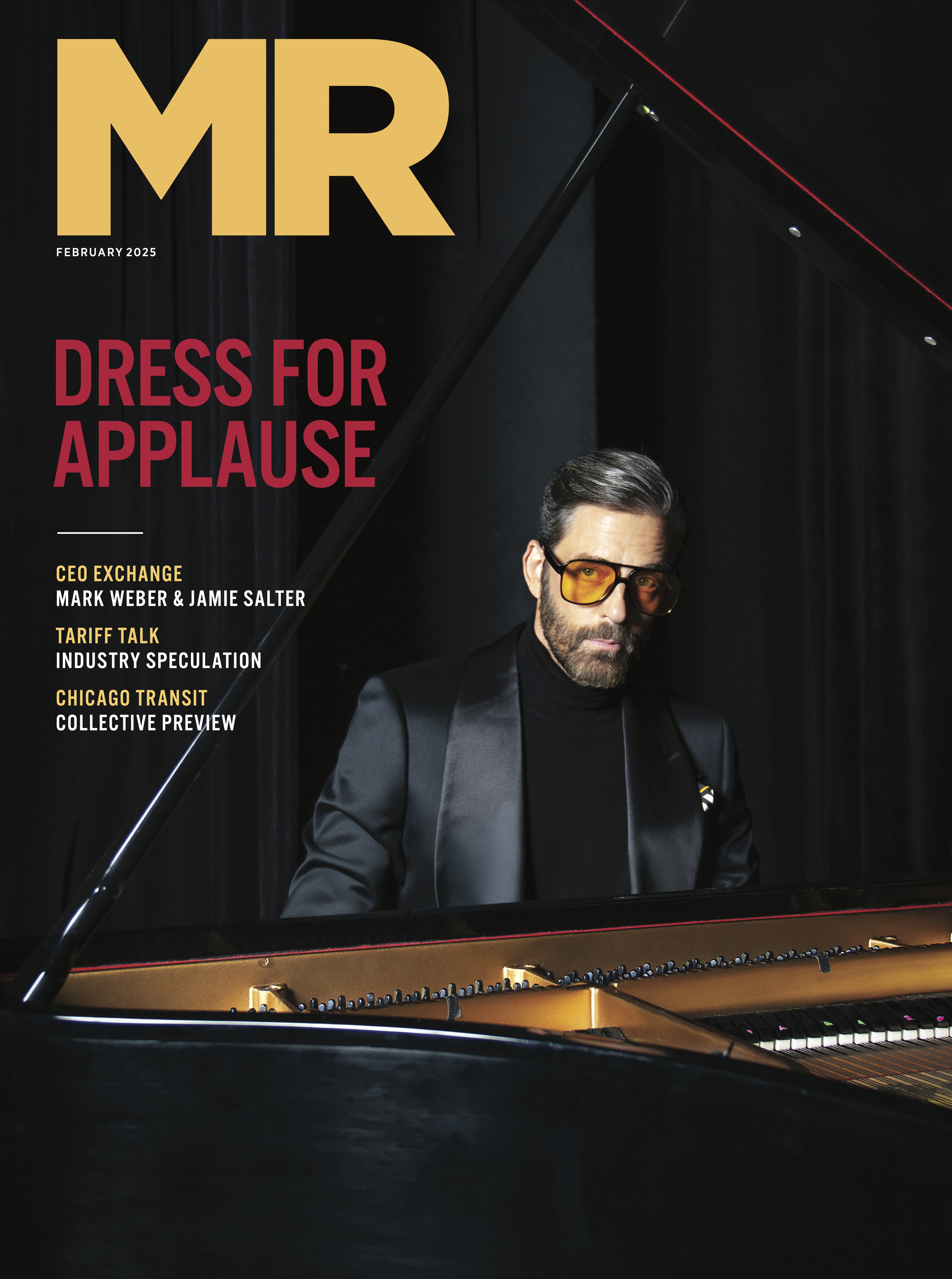


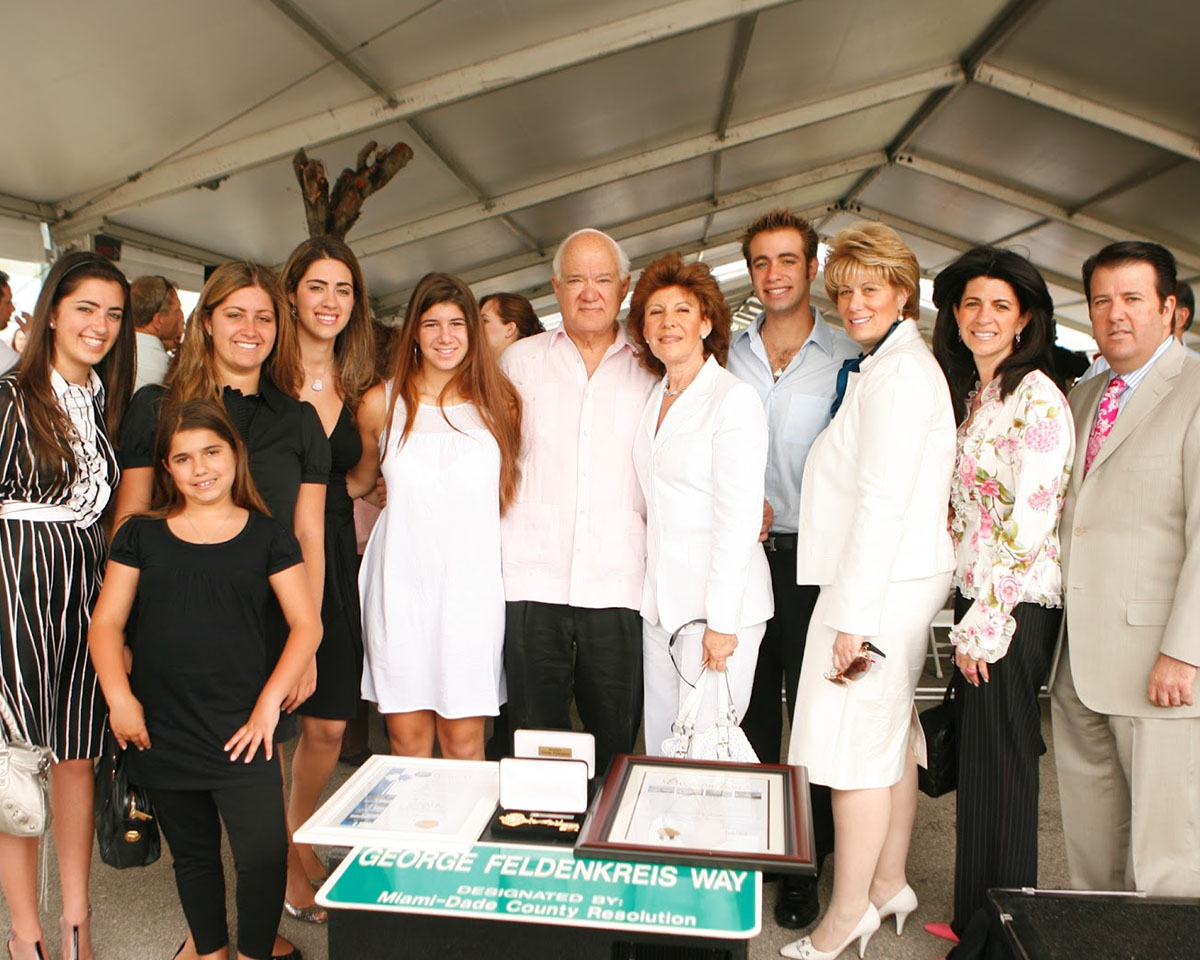
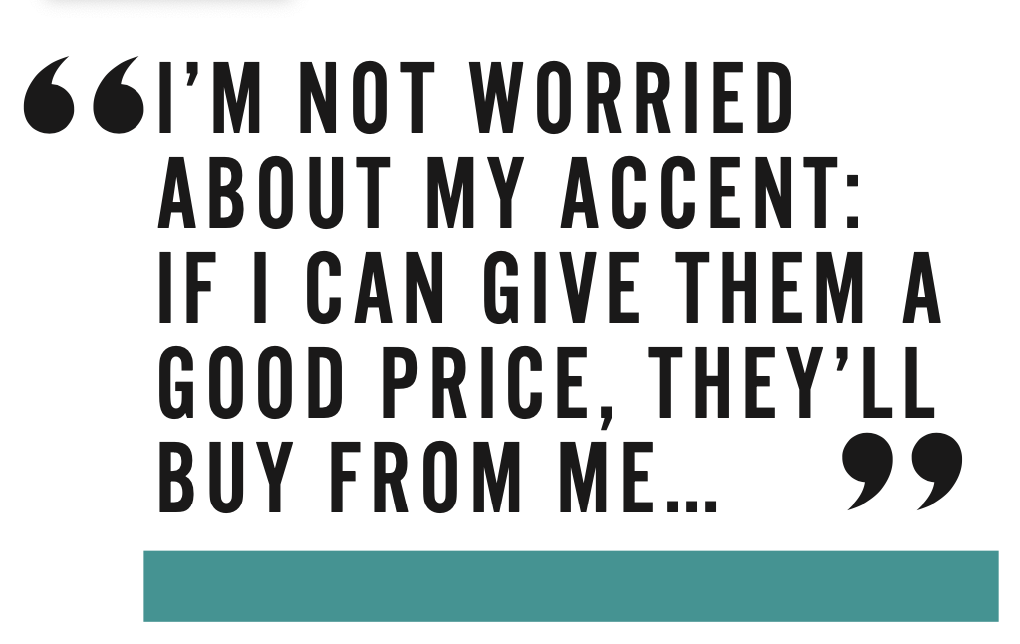
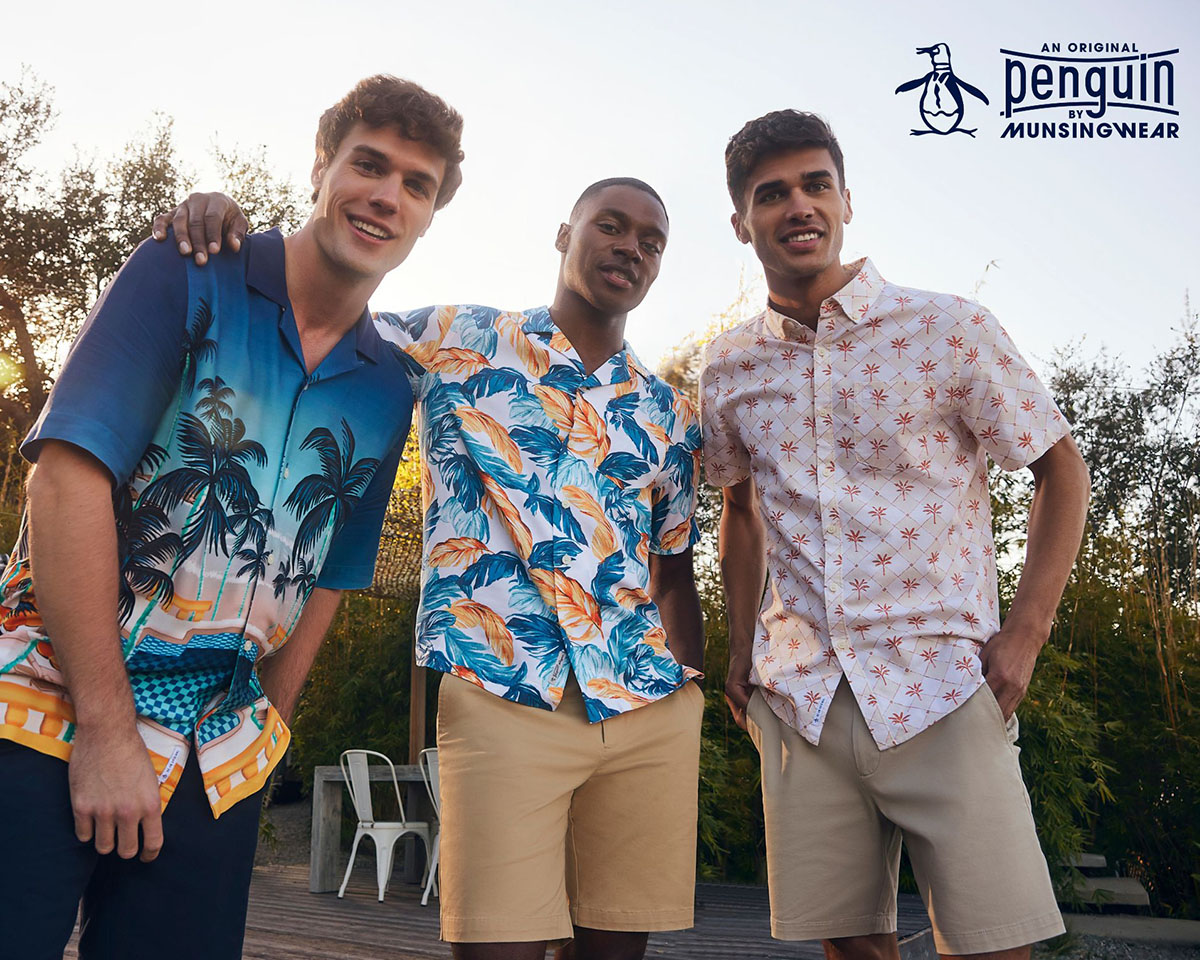

George is a fabulous merchant and a wonderful person
I am so glad that i got to know him and spend time with him when he is i NY
Congratulations on all your accomplishments.
Keep up the amazing job